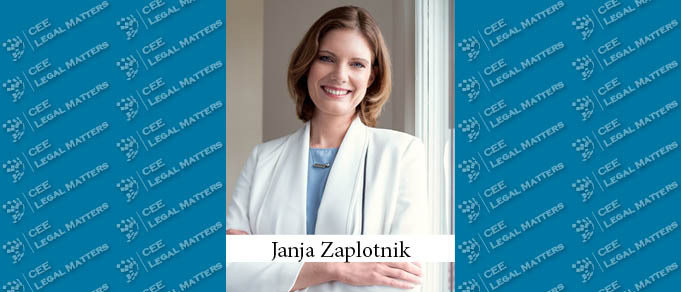Corporate reorganizations, spin-offs, and a generational change among family-owned companies are among the key features of Slovenia’s current market, and the number of collective claims for damages is rising, according to Jadek & Pensa Partner Janja Zaplotnik.
"These are turbulent times, with macroeconomic conditions affecting businesses and the legal sector," Zaplotnik says. "Slovenia faced a quarterly 1.4% decline in GDP in the third quarter of this year, and that, with a rather pessimistic outlook for Germany’s GDP growth, which is Slovenia’s biggest trade partner, creates uncertainty for many businesses. Larger investment projects in private sector companies are noticed to be put on hold, and cost control is becoming stricter."
"The government announced another set of measures to support the economy, to address increased energy prices," she continues. "The situation in terms of gas seems better now – October’s warm weather reduced the consumption of gas, and according to Slovenia’s gas regulator we have sufficient supplies for this winter," she says, adding that still, the country is vulnerable, "as we don’t have our own gas storage capacities."
Zaplotnik notes, that in terms of M&A, the Slovenian market remains quite vibrant. "Compared to previous years, there is a lot of work on corporate reorganizations," she says. "Many companies are going through spin-offs – major telecommunication companies are mostly the ones spinning off their infrastructure business into separate companies and real estate ones are increasingly separating into smaller companies." At the same time, she says, Slovenia also has a strong sector of small- and medium-sized family-owned companies, where generations are now changing. "Several founders of companies that were set up in the early nineties are now retiring and passing them to the newer generation," Zaplotnik notes. "The number of exits is high and there are a lot of opportunities for investors in such family-owned businesses."
"We are also facing much more transactions triggered by private equity funds – we now have our own Slovenian ALFI private equity fund, active in Slovenia and the region," Zaplotnik adds. "The Generali private equity fund was also involved in several transactions during the past year. Overall, the number of mergers notified to the competition regulator so far this year is almost double the number of the same period in the past year."
Looking beyond M&A, Zaplotnik notes that "another important feature of the Slovenian market is the rising number of collective actions being filed on behalf of allegedly harmed consumers. In the last year, Apple and 12 Slovenian banks were sued by the same claimant for alleged unfair commercial practices." According to her, "just recently, another consumer organization announced such actions against all four telecom operators in the country, claiming that these operators have contracts that allow them unilaterally change the prices without previously agreed grounds and methodology, and the harms allegedly amount to EUR 200 million. Consequently, these actions can have wide implications on the affected businesses."
Finally, Zaplotnik highlights that Slovenia is also facing political changes. "In November, we have elections almost every week. We just elected a new president and local elections and a referendum is also happening this month." Still, despite the political changes, she says that the government’s primary focus is still energy, noting that "bringing investments in renewables, especially in photovoltaics, is the government’s top priority. At the beginning of the next year, an act will be adopted, which is aimed to facilitate investments in renewable energy. Energy will likely still be a focus of the next year."






















